Are you looking to draft a medical equipment loan agreement but unsure where to start? This template can simplify the process, ensuring you cover all essential details while keeping it clear and concise. With the right framework, both parties can feel secure in the arrangement, making the transition smoother in times of need. So, let's dive in and explore the key components of a successful loan agreement for medical equipment!
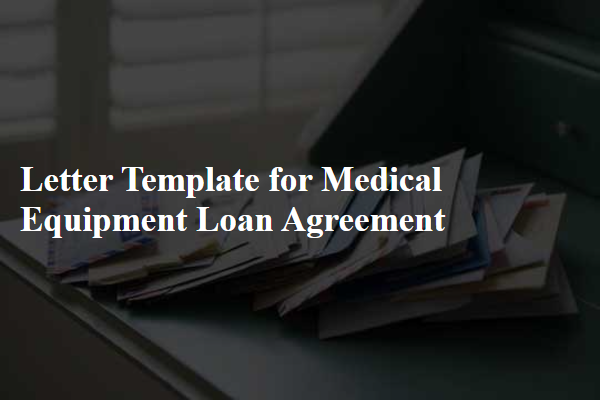
Equipment Description
The medical equipment loan agreement outlines essential details regarding the equipment provided, including specifications, functionality, and intended use. For instance, a Multiparameter Patient Monitor (brand XYZ, model ABC123) equipped with a 12-inch LED display, capable of tracking vital signs such as heart rate (10-200 bpm), blood pressure (30-300 mmHg), and oxygen saturation levels (SpO2) is essential for critical care settings. Additionally, the agreement may specify supporting accessories like disposable sensors, power cables, and calibration instruments that facilitate accurate measurements. The loan period typically lasts 30 days, commencing from the date of delivery to the designated healthcare facility, XYZ Hospital located in Springfield. The agreement may also detail responsibilities regarding equipment maintenance, indicating the need for regular calibration every two weeks to ensure optimal performance and reliability during patient monitoring.
Loan Duration and Terms
A medical equipment loan agreement outlines the terms and conditions for borrowing essential devices, such as ventilators or wheelchairs, for a specified loan duration, typically ranging from weeks to months. The agreement includes responsibilities detailing the maintenance and care of the equipment during the loan period, ensuring compliance with safety regulations as mandated by the healthcare facility or provider. Additionally, it addresses contingencies like loss, theft, or damage, which may incur fees for repairs or replacement costs. Meanwhile, the agreement stipulates the required documentation, such as identification and proof of need, to formalize the loan, often necessitating the signature of a healthcare professional to validate the arrangement.
Maintenance and Repairs
A medical equipment loan agreement entails stipulations regarding maintenance and repairs to ensure the equipment operates effectively throughout the loan period. Essential items include scheduled maintenance services, typically occurring every six months, with detailed records documenting performance checks and necessary repairs. The agreement specifies the party responsible for repairs, whether it be the borrower or the lender, depending on equipment type. Additional clauses may outline the handling of mishaps requiring urgent repairs, and a timeframe for resolving such issues, often within 48 hours to minimize downtime. Furthermore, specific costs related to parts and labor may also be identified, ensuring clarity in financial responsibilities. Equipment such as MRI machines or infusion pumps often require detailed adherence to the manufacturer's guidelines for maintenance to uphold safety and efficacy standards.
Liability and Insurance
Medical equipment loans, such as ventilators and ultrasound machines, require clear liability and insurance terms to protect both the lender and borrower. Liability coverage must specify responsibility in cases of damage or loss, detailing protocols for reporting incidents and potential replacement costs. Insurance policies must cover equipment transport to locations like hospitals and clinics within regions defined by zip codes or municipal boundaries. Terms should outline requirements for liability insurance limits, typically ranging from $500,000 to $2 million, and include clauses for indemnification, ensuring that the borrower takes full responsibility for third-party claims related to equipment use. Additionally, the agreement should note the necessary documentation, including proof of insurance valid for the duration of the loan, to provide a clear framework for managing risks associated with the use of delicate and costly medical tools.
Return and Inspection Conditions
Medical equipment loan agreements, particularly for devices such as ventilators, defibrillators, or infusion pumps, commonly include specific conditions regarding return and inspection. Upon completion of the loan period, the borrower must return the equipment to the designated medical facility or equipment provider within 24 hours. The returned items must be clean, intact, and free from any damage (both cosmetic and functional). An inspection will be conducted within 72 hours of return by qualified biomedical technicians, assessing functionality and overall condition against a checklist of operational criteria. Any discrepancies or damage may result in repair charges, possibly exceeding hundreds of dollars based on the equipment's original condition prior to the loan. Documentation must accompany the returned equipment, detailing maintenance, usage history, and any incidents that may have occurred during the loan period.
Letter Template For Medical Equipment Loan Agreement Samples
Letter template of Medical Equipment Loan Agreement for Hospital Facility
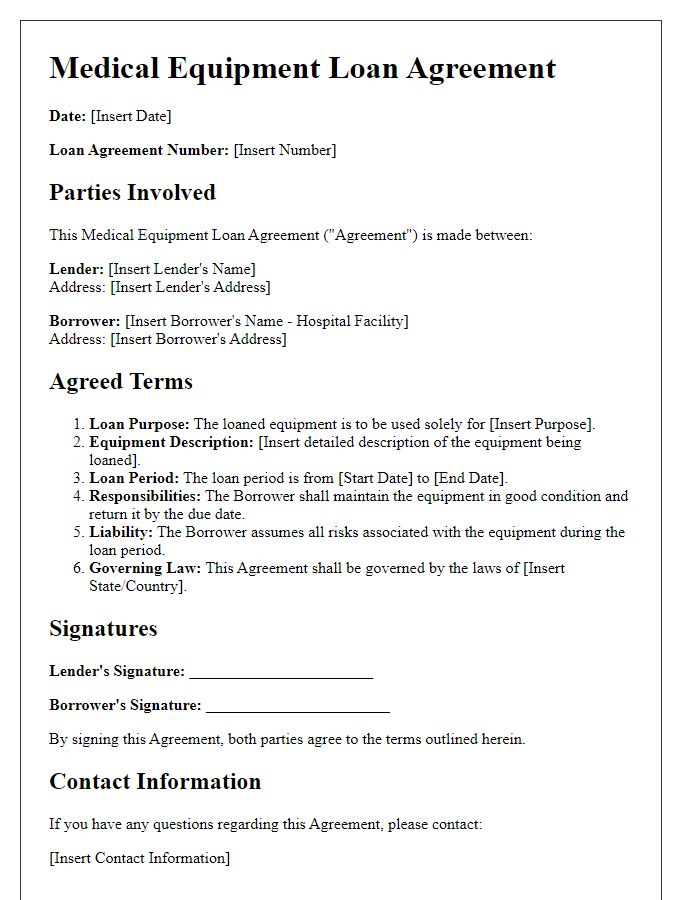
Letter template of Medical Equipment Loan Agreement for Long-Term Rental
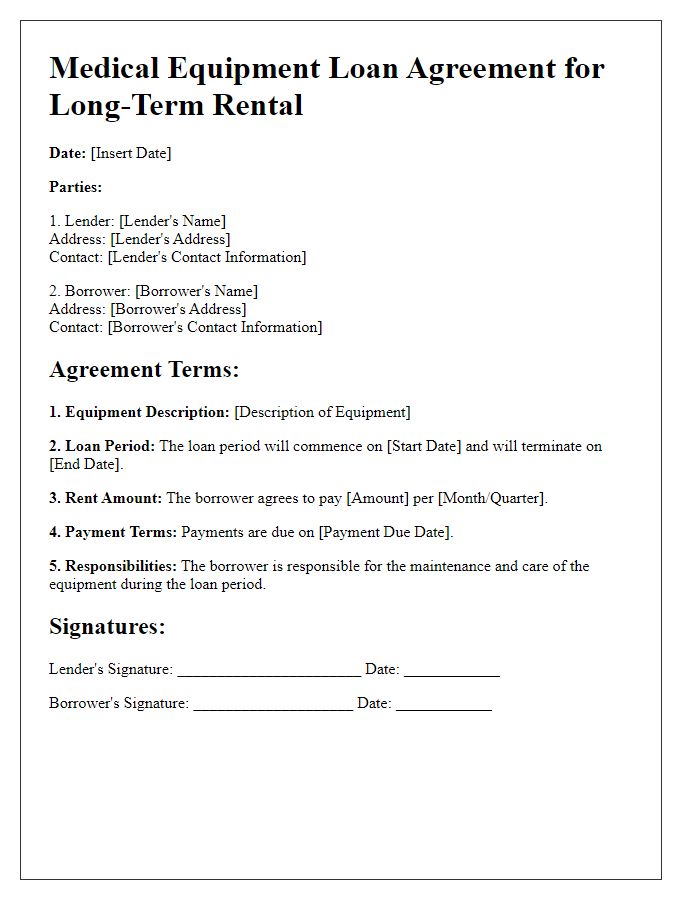
Letter template of Medical Equipment Loan Agreement for Nonprofit Organizations
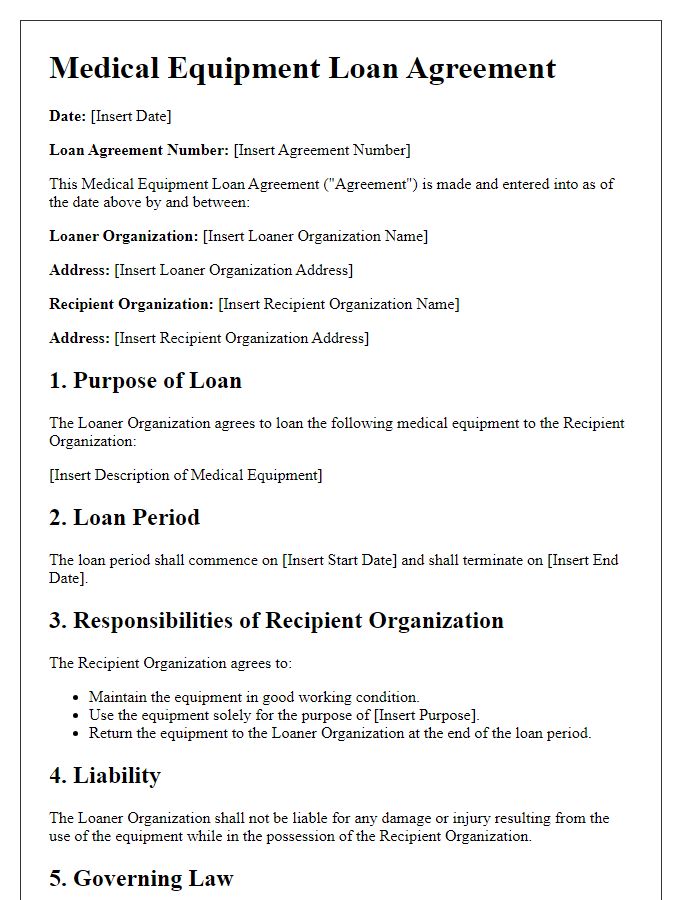
Letter template of Medical Equipment Loan Agreement for Patient Rehabilitation
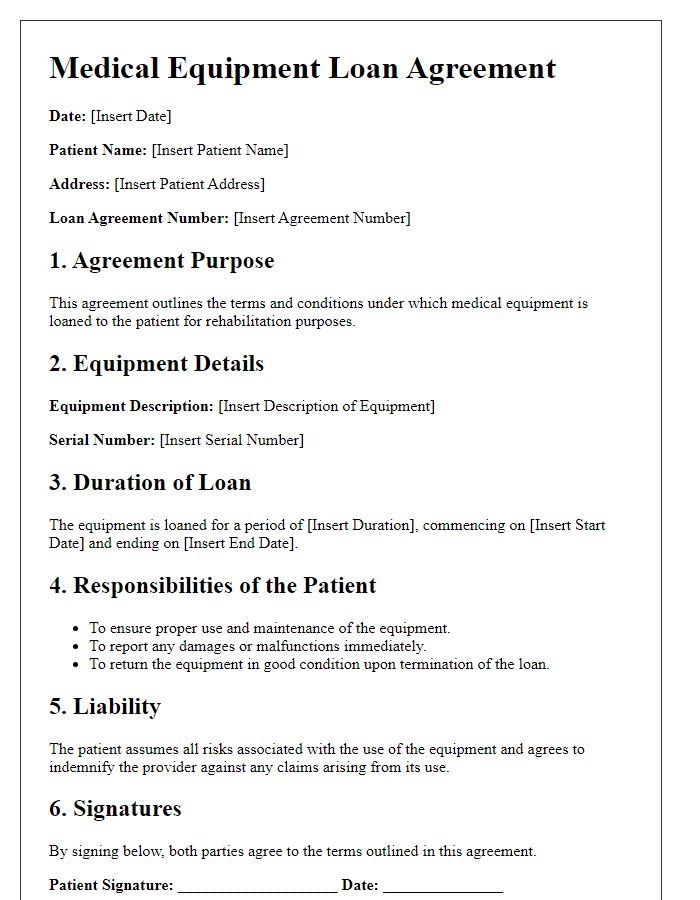
Letter template of Medical Equipment Loan Agreement for Community Health Programs
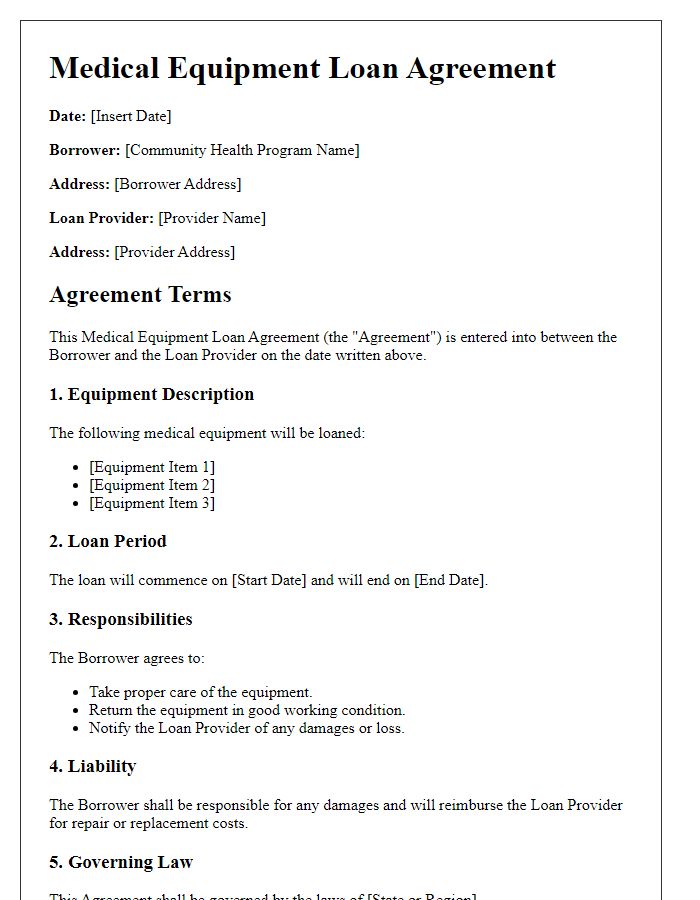
Letter template of Medical Equipment Loan Agreement for Emergency Response
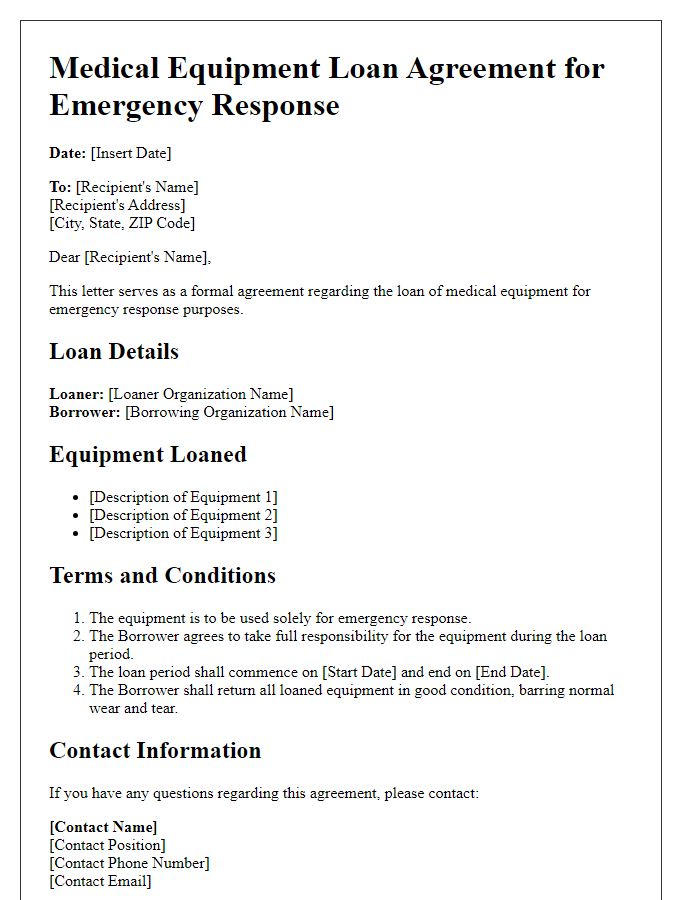
Letter template of Medical Equipment Loan Agreement for Educational Institutions
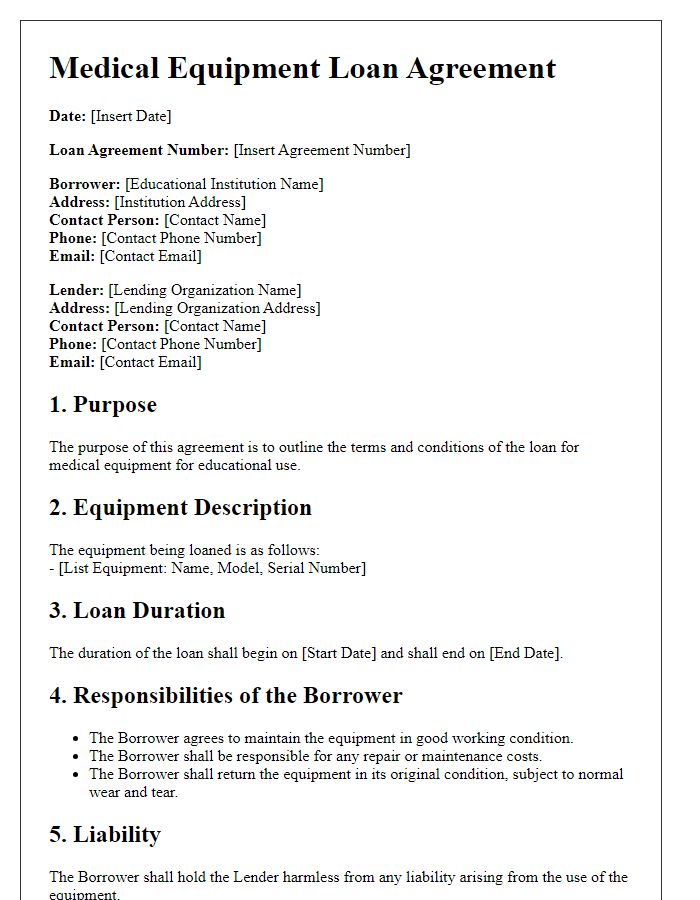

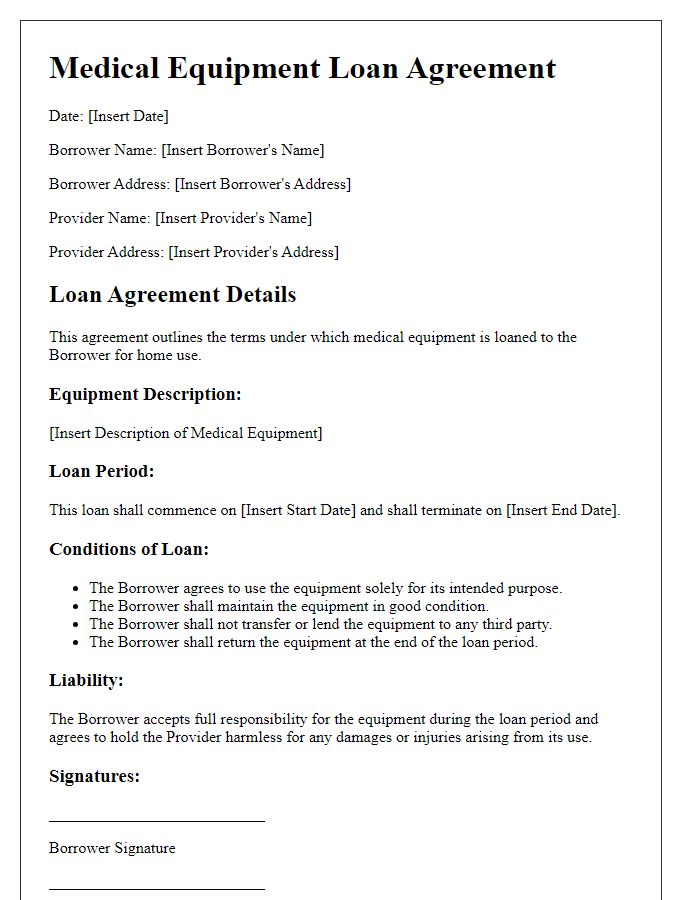
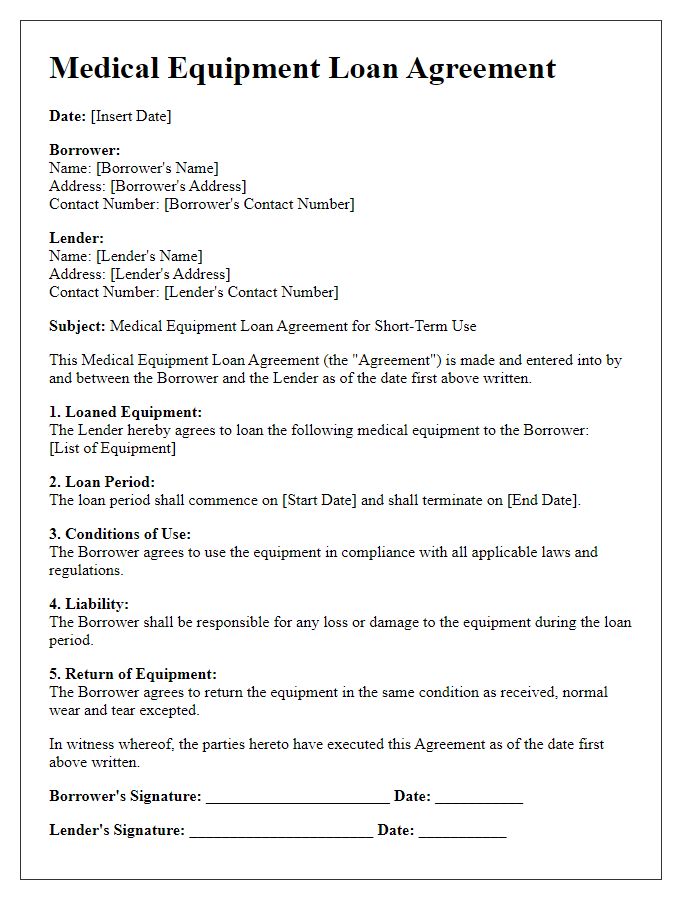
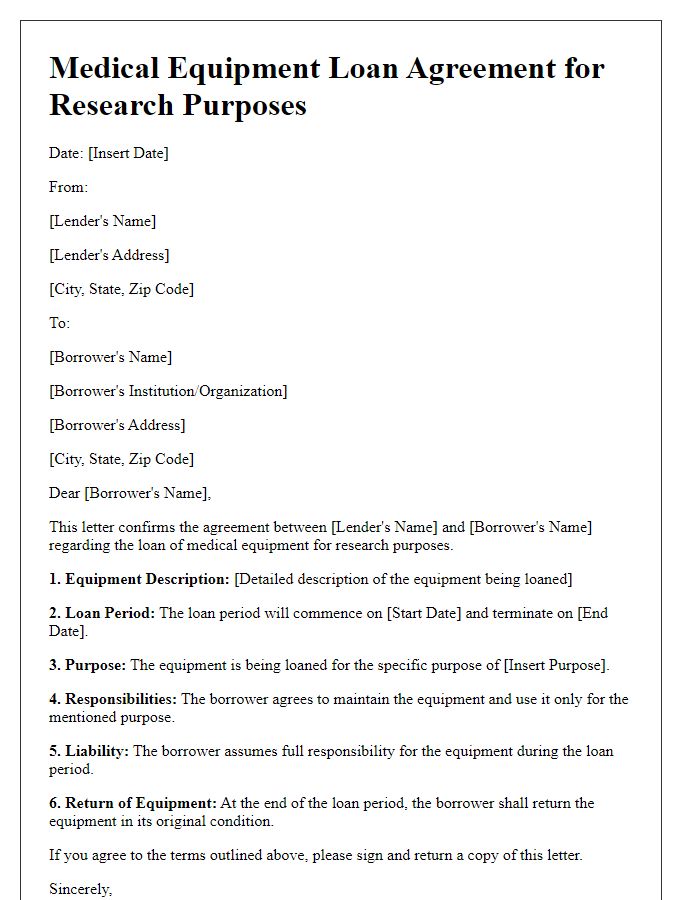

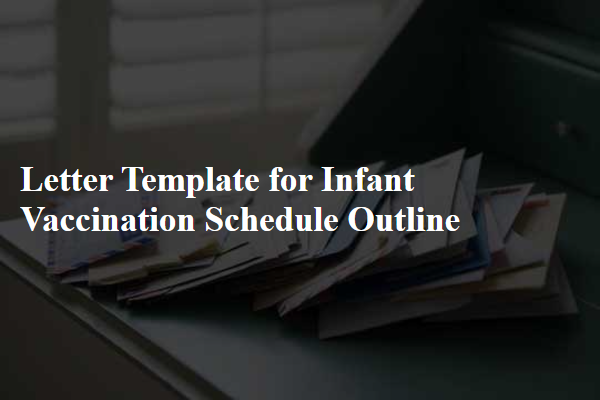
Comments